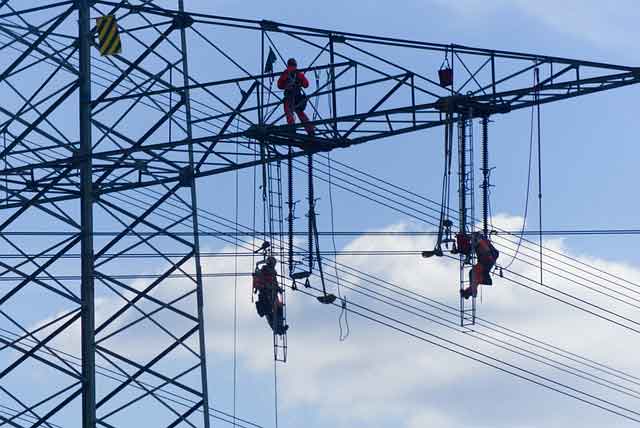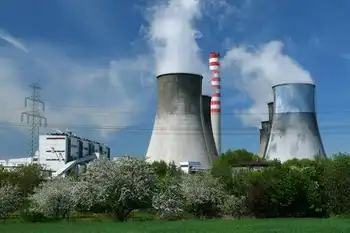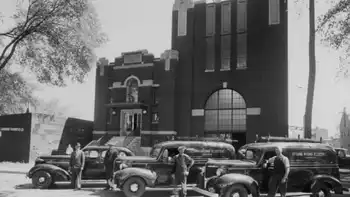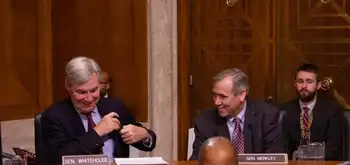EPA targets big greenhouse gas polluters
By The Columbus Dispatch
Electrical Testing & Commissioning of Power Systems
Our customized live online or in‑person group training can be delivered to your staff at your location.

- Live Online
- 12 hours Instructor-led
- Group Training Available
The EPA proposal would require polluters to reduce six greenhouse gases by installing the best available technology and improving energy efficiency whenever a facility is built or significantly changed. The rule applies to any industrial plant that emits at least 25,000 tons of greenhouse gases a year.
These large sources are responsible for 70 percent of the greenhouse-gas emissions — mainly carbon dioxide from burning fossil fuels — that are released in the U.S., the EPA said.
"By using the power and authority of the Clean Air Act, we can begin reducing emissions from the nation's largest greenhouse-gas-emitting facilities without placing an undue burden on the businesses that make up the vast majority of our economy," EPA Administrator Lisa Jackson said. "We know the corner coffee shop is no place to look for meaningful carbon reductions."
Any change would have a big impact in Ohio, where 22 coal-burning power plants and other large factories emitted more than 138 million tons of carbon dioxide in 2008. Coal-fired power plants are among the biggest emitters of the global-warming gas.
One of the smallest utility-owned power plants, American Municipal Power's Richard Gorsuch station near Marietta, emitted 7.6 million tons of carbon dioxide in 2008. One of the largest, American Electric Power's Gavin plant along the Ohio River near Cheshire, emitted 78.5 million tons.
Ohio utility officials were critical of the proposal, saying they would prefer that the EPA wait for Congress to act.
"We think a legislative approach would provide more flexibility," said Ellen Raines, spokeswoman for Akron-based FirstEnergy.
Melissa McHenry, spokeswoman for Columbus-based AEP, was more specific in an e-mailed statement.
"Regulating greenhouse-gas emissions through the Clean Air Act won't be economy-wide, address the global nature of the issue or achieve least-cost emission reductions — all critical if we are going to reduce global concentrations of CO2 and allow our economy to recover and ultimately, thrive," McHenry said.
Earlier this year, the Obama administration announced that it would start developing the first greenhouse-gas-emissions standards for cars and trucks. Those regulations, which would take effect in 2010, compel the EPA to control greenhouse gases from large smokestacks as well, the agency said.
Industry groups immediately questioned the agency's argument. They charged that the EPA was skirting the law because the Clean Air Act typically covers any facility releasing more than 250 tons a year of a recognized pollutant. That threshold would require more facilities to fall under the new regulations.
"This proposal incorrectly assumes that one industry's greenhouse-gas emissions are worse than another's," said Charles T. Drevna, president of the National Petrochemical and Refiners Association.
Jeff Holmstead, a former top EPA air-pollution official who is now a lobbyist for the energy industry, said the agency is trying to "fit a square peg into a round hole."
Jackson, speaking at a news conference at a climate-change summit being hosted by California Gov. Arnold Schwarzenegger, said the rule is legally defensible.
"The EPA would not propose a rule that we didn't believe... made good legal sense," she said.
The EPA's announcement came hours after Senate Democrats unveiled legislation that would set limits on the amount of greenhouse gases emitted from large industrial sources. The Senate bill, unlike the House-passed version, preserves the EPA's authority to regulate under the Clean Air Act.
Environmentalists said that the two efforts go hand in hand.
"You can't have one without the other if we're going to be successful in moving America to clean energy," said Emily Figdor, director of the global-warming program at Environment America, an advocacy group.











